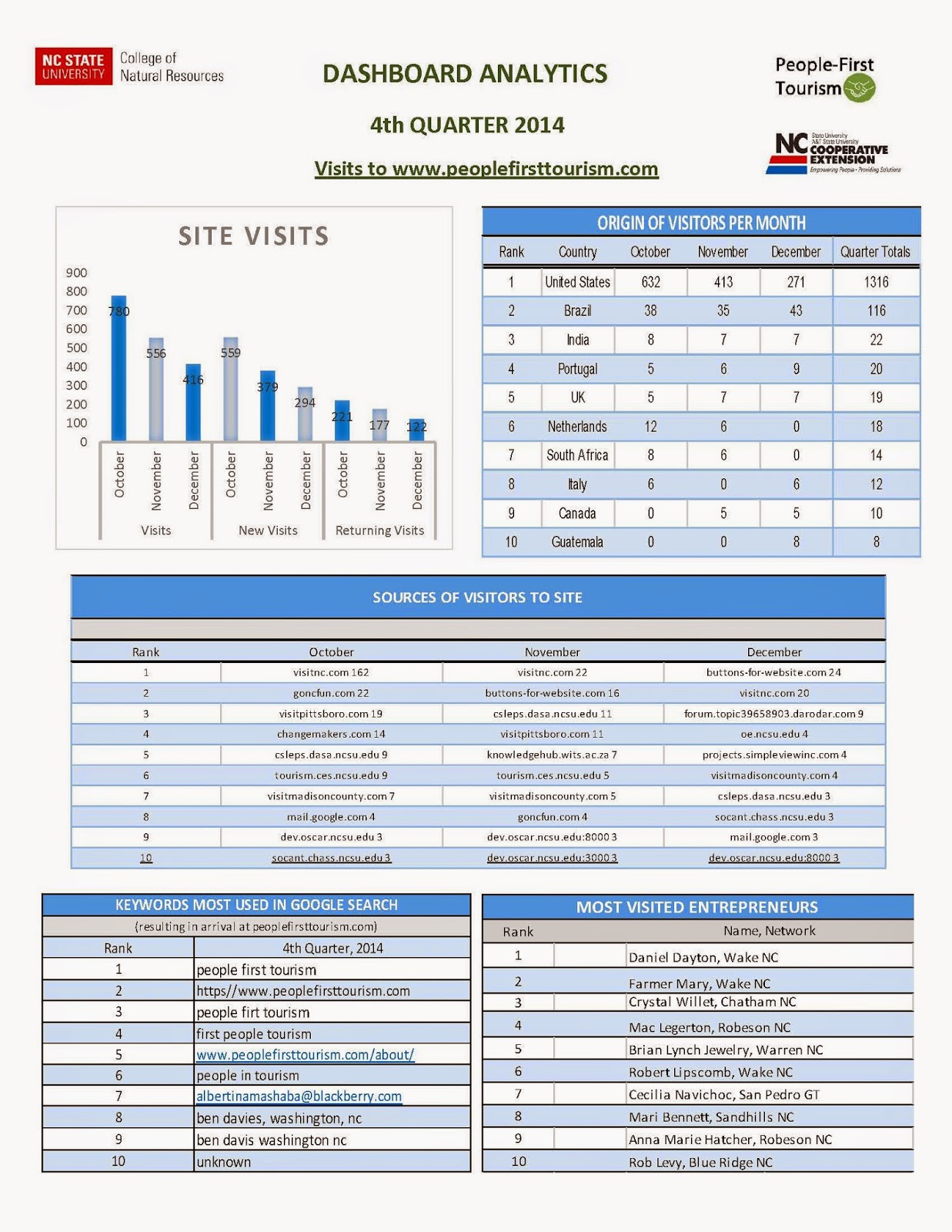Enabling micro-entrepreneurial success through dedicated business analytics
In this age of information mastery, enterprises routinely
seek to obtain competitive advantages through interpretation of big
data analysis. Analytic competency is, however, an
institutional skill that is not inherent in many smaller organizations. Tourism
micro-entrepreneurs often lack the resources, access to data, and analytical training
to dependably use data to inform their decisions. They generally make decisions intuitively. Accordingly, as a participatory action research project, People-First
Tourism continuously records data about the performance of project participants
to understand their path to success. Additionally,
the project attempts to share key data with the micro-entrepreneurs and with
the empowerment agents that support them in the attempt to give these
micro-entrepreneurs a competitive edge in their respective markets.
One of the ways this project seeks to “inject” data to the
decisions of participating micro-entrepreneurs is through the dissemination of quarterly
reports. These P1T Dashboard Analytics
reports contain a digest of data about the overall reach of the project, as
well the performance of the most visited micro-entrepreneurs. Additionally, the report includes data about
the reach of the project’s scholarship to the general public through select
social media tools – e.g., this web blog.
The latest report we published was the P1T
Dashboard Analytics Report for 4th Quarter of 2014. The report for the 1st quarter of
2015 is shortly forthcoming.
Overall, this report revealed that visitation to the www.peoplefirsttourism.com web
marketplace was in decline during the last three months of 2014. The majority of visitors are from the USA,
and they find us through searches for the term People-First Tourism or close
derivations. Many of our visitors come
directed from the web sites of tourism promotion partners like www.visitnc.com, www.goncfun.com, www.visitpittsboro.com, and www.visitmadisoncounty.com. Another important source of visitors are the
web sites of partner organizations like NC State’s CSLEPS [csleps.dasa.ncsu.edu/asb/spring/costa-rica],
and the NC Tourism Extension [tourism.ces.ncsu.edu]. The report also features the ten most visited
micro-entrepreneurs, which in this period were generally located in Wake County
and Chatham County, NC.
While the primary purpose of these reports is to elicit
discussions with empowerment agents and micro-entrepreneurs so as to enable
data-driven business decisions, we also use these reports to ensure transparency
and to attempt to drive academic discussions and research on
micro-entrepreneurial business analytics.
Therefore, we invite the public and the academic community to comment and to advise
us on ways to improve this aspect of the People-First Tourism project.
Gene brothers, PHD
Associate professor of Equitable and
Sustainable Tourism
NC State University
Shaun, Fisher, MS student
Parks, Recreation and Tourism
Management
NC State University




Comments
Post a Comment